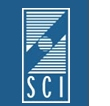 |
|

Editor's Note: The alignment of curriculum with state requirements is an important concern for many IPS users because IPS covers only a fraction of the topics on the tests. This article and One Community's Response to State Mandeated Testing demonstrates that IPS students are not penalized on state tests.
Following the Yellow Brick Road
(or, How Our Students Succeed on State Tests)
Marsha Barber
Science Coordinator
Jefferson County Schools, Colorado
As all of the various accountability measures are placed
upon teachers, schools, and districts, educators may sometimes feel as
if they are caught in a traffic jam where three interstates converge and
there are multiple exit ramps to choose from. As the pressure to improve
student achievement increases, we may begin questioning everything we
do. "Are we using the right curriculum?" "Will the state
assessment include items our students haven't studied?" "How
can we incorporate some last-minute cram sessions into our courses before
the day of the test?"
As educators, we need to hold fast to our convictions and continue using quality instructional materials. We can not let forces beyond our control lead us off the path we know is best for students. The question we should be asking ourselves is why aren't we spending the time and energy staying on the yellow brick road as Dorothy did in The Wizard of Oz!
You'll recall that in that well-known children's story, Dorothy encountered a scarecrow, a tin man, and a cowardly lion on her journey. Just as the lion needed courage, educators must have the courage to stand behind quality instructional materials such as IPS and spend the necessary resources training teachers and purchasing lab equipment for successful implementation.
Also in the story, Dorothy helped the scarecrow get a brain. We educators have the responsibility to challenge the thinking of our students so that they are not just sitting in one boring science course after another: We know the difference between a quality curriculum that develops conceptual understanding through a series of investigations and those that are merely a collection of hundreds of unconnected facts. And finally, just like the tin man in The Wizard of Oz, we need heart. The love of science must back up our convictions in this trying time of budget cuts and increasing accountability. Dedicated teachers share their love of science with students every day as they challenge them with a rigorous science curriculum.
Little by little, districts, schools, and individual teachers are seeing the difference quality instructional materials make in the long-term progress of students' understanding of science concepts. In the Jefferson County Schools in Colorado, the percentage of eighth-grade students who are proficient or advanced on the Colorado Student Assessment Program (CSAP) in science has steadily increased over the past four years. The baseline data in 2000 showed that 49% of eighth graders were proficient or advanced-and that percentage has steadily increased each subsequent year to 57%, 60%, and, finally, 62% in 2003. During the same period, most other Denver metro districts' scores actually dropped or remained stagnate from year to year.
A variety of science programs are used throughout the Denver metro area, and even within districts there may be inconsistencies. Many of the commercial programs in use attempt to touch on all topics in a discipline without developing a depth of understanding for major concepts in that field. As a result, students are bombarded with hundreds of facts that have no unifying focus.
In the Jefferson County Schools, we continue to adhere to our belief that all students can learn science concepts by using challenging curricula. As the district continues to train teachers in implementing a quality K-8 science program-BSCS Science T.R.A.C.S., Middle School Life Science, and Introductory Physical Science-we continue to see steady progress from our students. The district, however, is not satisfied with the current results; we cannot continue to leave some students behind. We are striving to identify various teaching and assessment strategies that will assist ALL students in becoming scientifically literate citizens.
If we stand by our
convictions to support students with high-quality curricula, they will
be prepared to have a successful future no matter what career path they
choose. The pot of gold will be theirs somewhere over the rainbow.